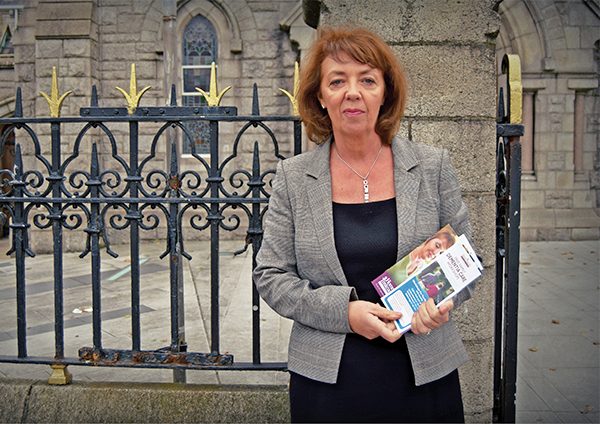
Pictured: Bernie Byrne.
Home Instead work with senior citizens who are affected with problems of mobility, health and safety and the onset of conditions such as dementia.
Their role of educating the public on the nature of dementia is of paramount importance to changing society’s view of the illness, so that support, quality of life, independence and dignity can be maintained by those afflicted with the condition.
Concerned family members, medical students, members of the medical profession and care assistants of the elderly should consider the benefits of attending a free workshop on the assessment of dementia, or how to manage and to retain information and memories.
Bernie Byrne works as a community liaison worker with Home Instead and has participated in giving talks for free workshops on dementia and Alzheimer’s that began back in September 2016 and are ongoing through this autumn.
Byrne explains: “With dementia, it’s important that someone is properly assessed before a doctor can make a diagnosis. An assessment should be made over a period of time. There are at least one hundred types of dementia, the most common types would be Vascular Dementia and Alzheimer’s Disease.
People can live for a long time with dementia. The people who interact with sufferers can change their life, including family who can learn about the illness itself and help improve the situation for those affected. What we focus on is wellness of living for sufferers. When dealing with dementia, people need to gently help the sufferer remember for themselves and not put any pressure on them with the issue of memory loss.”
Home Instead have run workshops from their local office on Merrion Road, Ballsbridge for active retirement groups, as well as providing talks in libraries, churches and community centres. These workshops were organised to run with Alzheimer’s Month, which took place over the month of September and they are part of the ongoing educational process that Home Instead involve themselves in, with the help they provide to local businesses, carers, families and health officials. Talks can be about one to three hours, depending on the situation and the audience on the given day.
“I have gone to retirement groups and given talks, medical centres and banks. We usually give talks at community centres,” added Byrne. “We have done what we call health and wellness days, which we have hosted in the Olivia Centre in Donnybrook before. We send out invitations to the public. However, it may be hard for carers to get the time to come along for the talks and events that take place. We have gotten good feedback so far from our clients.”
Byrne also stated that they are open to going to schools in the future. “Teenagers also want to be able to help grandparents and inform them of the problems of dementia.”
Back in 2014, the Irish government launched its National Dementia Strategy which is ongoing in its implementation and effect to help raise awareness across the country and remove any stigma that exists around the illness.
The conditions of dementia, the dignity of the sufferer and the exposure of the condition to the public is ongoing. Essentially, what is promoted and shown is the wellness and quality of life that the sufferer can enjoy with help and understanding and not the tumultuous dread we often associate and attach to this challenging condition.
By Robert Fullarton



